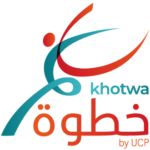Change the system to a Federal System.
Adopting a federal system in Algeria could be a feasible approach, given its diverse regional, ethnic, and economic landscape.
Suitability for Algeria
1. Ethnic and Regional Diversity:
- Algeria has significant ethnic and cultural diversity, including Arab, Berber (Amazigh), and other minority groups. A federal system can provide a framework for these groups to have a degree of self-governance, which can promote political stability and reduce tensions.
2. Economic Disparities:
- Different regions in Algeria have varying levels of economic development. A federal system allows regions to manage their own resources and development strategies, potentially leading to more balanced economic growth.
3. Geographic Size:
- Algeria is the largest country in Africa by land area. Federalism can make governance more efficient by decentralizing administrative tasks and allowing local governments to handle local issues.
Benefits of a Federal System
1. Local Autonomy:
- Regions or states can have control over local matters such as education, transportation, and health care, which can lead to more tailored and effective policies.
2. Political Stability:
- By providing autonomy to diverse groups, a federal system can reduce ethnic and regional conflicts, leading to greater national unity and stability.
3. Economic Efficiency:
- Decentralized economic policies can better address the specific needs of different regions, potentially leading to more efficient use of resources and economic growth.
4. Improved Governance:
- Local governments are often more in tune with the needs of their communities, which can lead to more responsive and effective governance.
Examples of Federal Systems
1. United States:
- Comprises 50 states, each with its own government that can legislate on local matters while the federal government handles national issues.
2. Germany:
- Made up of 16 Länder (states) with significant powers over education, policing, and cultural affairs, while the federal government retains control over foreign policy and defense.
3. Australia:
- Composed of 6 states and 2 territories. Each state and territory has its own government that controls local matters like education, health, and transportation. The federal government manages defense, foreign affairs, and trade.
4. Canada:
- Made up of 10 provinces and 3 territories, each with its own government that handles local issues like education and health care, while the federal government deals with national concerns such as defense and immigration.
Challenges
1. Implementation:
- Transitioning to a federal system from a unitary state can be complex and requires significant political will and consensus among various stakeholders.
2. Regional Inequality:
- There’s a risk that wealthier regions could advance faster than poorer ones, potentially increasing disparities.
3. Administrative Complexity:
- Managing a federal system can be more administratively complex and expensive due to the need for multiple layers of government.
In conclusion, while a federal system could address many of Algeria’s governance challenges, it requires careful planning, consensus-building, and a phased approach to implementation. The benefits of enhanced local governance, reduced regional tensions, and more balanced economic development make it a potentially attractive option for the country.
Leave a reply
